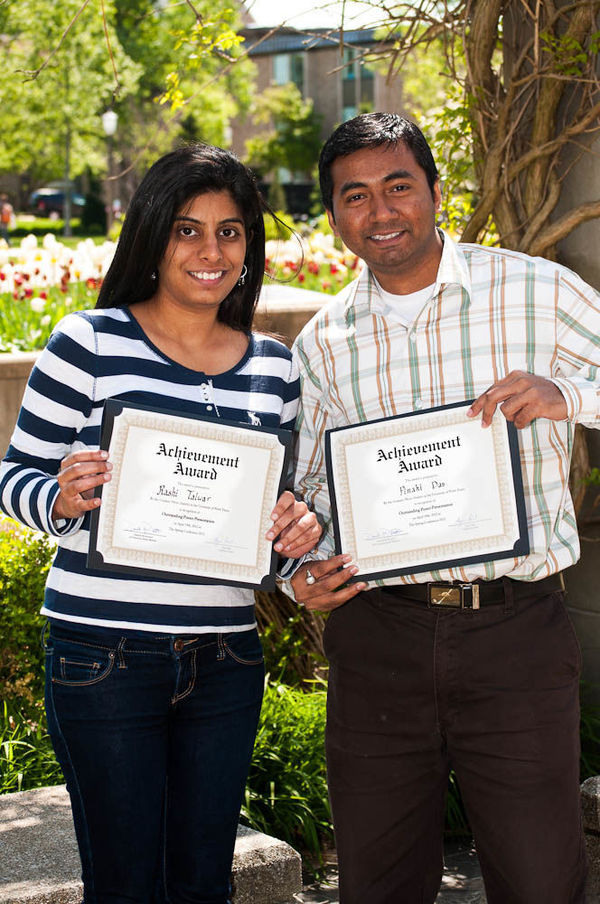
The recently-organized Graduate Physics Students (GPS) group held its first Spring Conference on April 19 in Nieuwland Hall. The meeting included eight oral presentations – two each from astrophysics, condensed matter physics, high energy physics, and nuclear physics – and two poster sessions.
Ayan Paul, a member of the GPS Conference Committee that included Alexander Long, Colin McClelland, Pokie Olson, Catherine Ratovski and Ali Snedden, said the group organized to foster understanding and potential collaboration as well as social interaction among different groups in physics.
For astrophysics, Olson presented an overview while Matt Meixner presented his research, “The Late Time Evolution of Supernovae and the Supernova Equation of State.” For condensed matter physics, Colin Lines presented an overview while Joseph Hagmann presented his research on topological insulators. For high energy physics, Bryan Ostdiek presented an overview while Nil Valls described research connected to the Compact Muon Solenoid/Large Hadron Collider at CERN. For nuclear physics, Brian Bucher presented an overview while Stephanie Lyons presented an update on the Nuclear Science Laboratory’s new accelerator and the St. George Recoils Mass Separator.
Rashi Talwar won first place in the poster competition; Pinaki Das won second. Darshana Patel and Karl Smith received honorable mention in the competition. The judges were Jorge de Blas Mateo, Dipanjan Ray, Katherine Rueff, and Amy Roberts. Faculty members attended the second poster session, and the entire department was invited to a closing social hour.
Paul said the GPS hopes to sponsor the conference every semester or every year and potentially expand it to include faculty members, graduate students from other disciplines and other universities, and keynote speakers. “Collaborations can start,” he said. “This is a major motivation for it. Everyone’s busy with their own work. The guy in the next lab may have started on something connected, but you’d never know.”